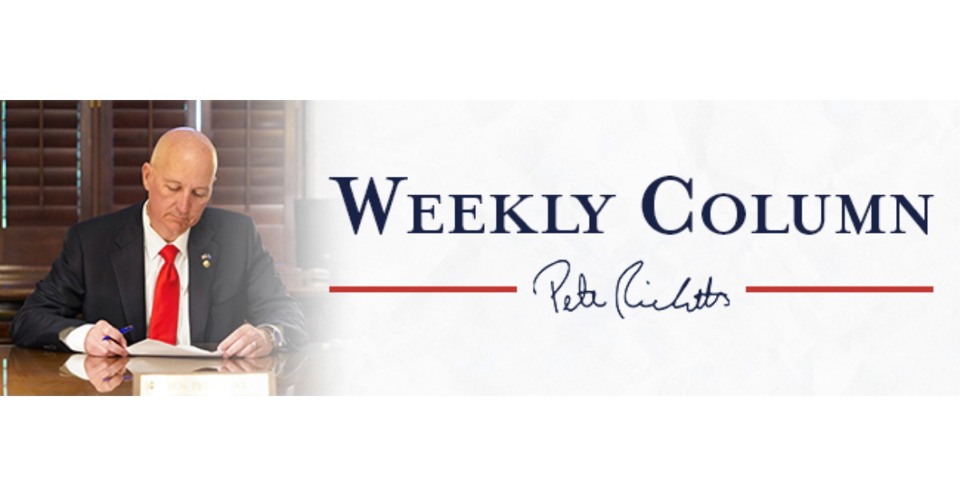Senator Ricketts’ Weekly Column: Major Wins for Online Child Privacy & Safety

Since their creation, social media platforms have connected people and communities. That connectivity is often positive. High school friends can reconnect after decades. Grandparents can see photos of loved ones who live far away. Yet we can’t ignore the dangers of these platforms, especially to our young people. When it comes to kids, safety should be the default. This week, my Senate colleagues and I passed two bills to better protect children and teenagers from these dangers online.
We’ve seen the horror stories. Predators use social media to target kids online. Videos go viral that promote self-harm and eating disorders. Bullies spew hateful comments, destroying the mental health of our children. We must do better.
The two bills we passed represent an important step towards protecting online privacy and safety. They also give parents new tools, safeguards, and needed transparency.
I co-sponsored the Kids Online Safety Act with Senators Marsha Blackburn (R-TN) and Richard Blumenthal (D-CT). Our bill requires social media platforms to put the well-being of kids first. It requires platforms to provide minors with options to protect their information. It gives an option to disable addictive product features that promote “doom-scrolling.” It would also allow minors to opt-out of personalized algorithmic recommendations. These tools will protect against the excessive consumption of negative content which can facilitate anxiety, depression, and other mental health challenges.
Additionally, our bill creates a duty for online platforms to prevent and mitigate specific dangers to minors. This includes content that promotes suicide, eating disorders, substance abuse, sexual exploitation, and illegal products like alcohol. Companies in every other industry must take steps to prevent users from being hurt. Social media companies should do the same. Our bill makes that a reality.
We also passed an updated Children and Teens’ Online Privacy Protection Act (COPPA). My colleague Senator Cassidy called it “COPPA 2.0.” The current online privacy laws for children hadn’t been updated in 25 years. A lot has changed since then. This update was long overdue. It expands age protections from 13 years old to also include teenagers under 17 years old. It bans targeted advertising toward minors. It limits data collection and strengthens parental controls.
Increasing protections for kids online is common-sense. These are major wins for child privacy and safety. But it’s just the first step. We must also continue our fight against Chinese Communist Party-controlled TikTok. The Justice Department just announced it is suing TikTok over “massive scale” violations of existing COPPA privacy laws of children under 13. In recent court filings, the Justice Department also claimed China has used TikTok to “to illicitly interfere with our political system.” They’ve also used it to push their communist agenda and spy on Americans. We took action to ban China’s ownership of TikTok earlier this year. I also banned it entirely on state devices when I was Governor.
While nothing will ever replace active parental supervision and involvement, I’m confident these bills force social media companies to do more to keep kids safe. We need to give kids and parents the tools, safeguards, and transparency they need to stay safe. I encourage the House to pass both these bills and send them to the president’s desk.
